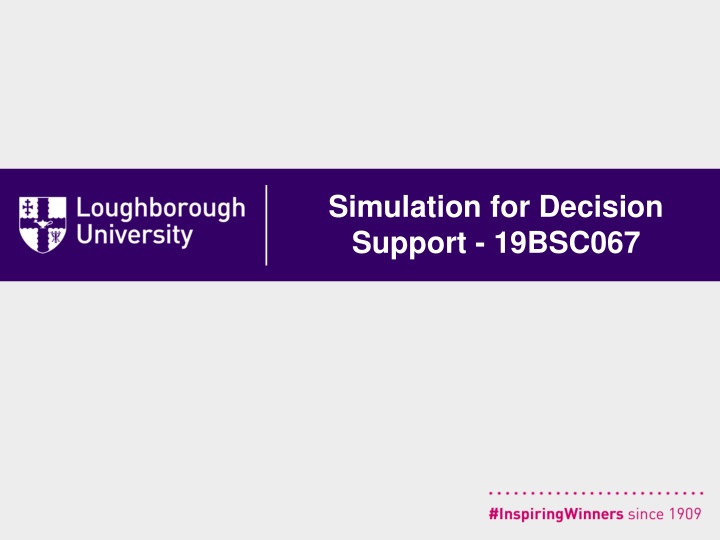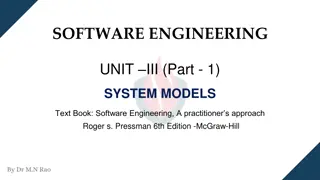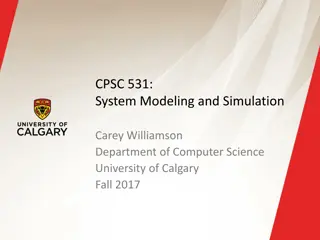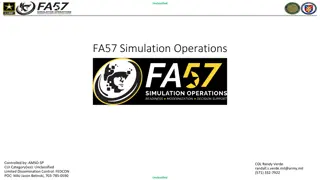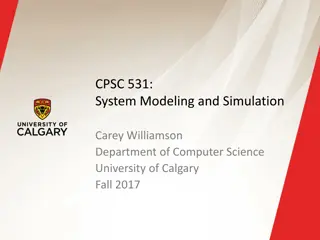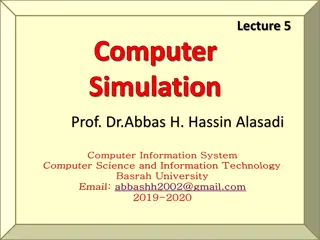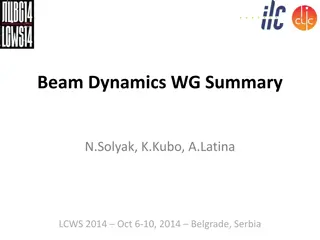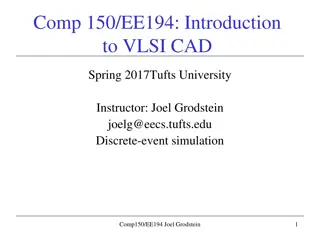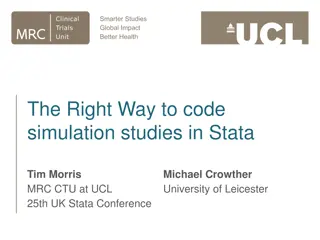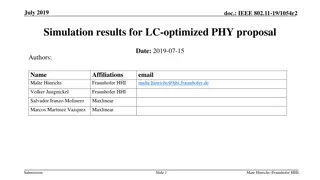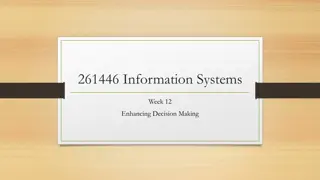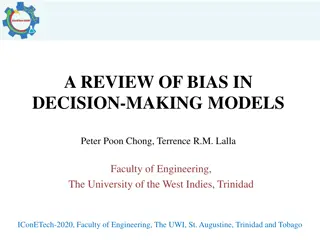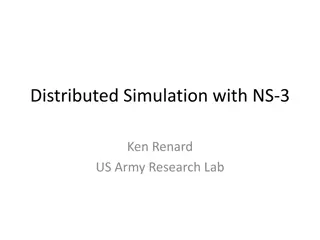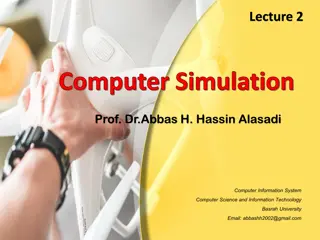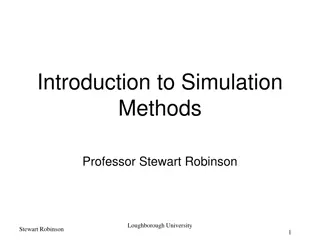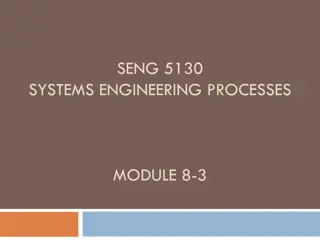Simulation Models and Decision-making Dynamics
This module delves into the impact of environmental dynamics on organizational performance and decision-making. Students will develop skills in modeling and simulation, focusing on discrete-event simulation and System Dynamics. Assessment is through group coursework and essays, with developmental feedback provided to enhance learning outcomes.
Download Presentation

Please find below an Image/Link to download the presentation.
The content on the website is provided AS IS for your information and personal use only. It may not be sold, licensed, or shared on other websites without obtaining consent from the author.If you encounter any issues during the download, it is possible that the publisher has removed the file from their server.
You are allowed to download the files provided on this website for personal or commercial use, subject to the condition that they are used lawfully. All files are the property of their respective owners.
The content on the website is provided AS IS for your information and personal use only. It may not be sold, licensed, or shared on other websites without obtaining consent from the author.
E N D
Presentation Transcript
Simulation for Decision Support - 19BSC067
About This Module The aims of this module are to: Develop a critical appreciation of how the dynamics of the environment in which organisations work impact on their performance and decisions; Develop skills in modelling and simulation of business dynamics as an aid to decision-making; Build on students' industrial placement experiences; Develop students' skills in using computer packages
Module content Key stages in developing and using simulation models in business Facilitated modelling Use simulation software to develop models We focus on 2 simulation methods: discrete-event simulation (DES) and System Dynamics (SD). Critical evaluation of the use and relevance of simulation in management decision making. Model Verification & Validation and Ethics
Teaching and Learning Lectures (11x2hr): taught lectures, guest speakers. Computer lab sessions with practical exercises (x6) Independent study group & individual
Assessment and Feedback No Exam 100% coursework 1. Group Coursework (50%) You will build a discrete event simulation model & produce a report (max 2000 words) Feedback: Written feedback on the work submitted will be provided. 2. Essay (50%) You will prepare a short essay on the use of alternative simulation methods in management and business (max 1500 words) Feedback: Individual written feedback will be provided.
Assessment and Feedback Developmental feedback is available to students through: Dialogue between students and staff in class sessions; Individual support; Interaction and advice in IT lab sessions.
Wider skills & knowledge development Knowledge Learn about two different simulation modelling approaches; Learn about the use of simulation and facilitated simulation in management and business; The key stages in developing and using simulation models and apply the approaches to real business problems; Use appropriate simulation software to develop models as an aid to decision-making. Skills Build simulation models, following relevant modelling procedures and activities. Demonstrate competence in a range of computer packages;
Why choose this module? Different to other modules Further develop and learn new skills (modelling skills, problem solving skills) much sought after in the industry Offers a good balance of technical/practical and theoretical knowledge. Appreciate how simulation can help organisations improve their performance Gain experience of designing a project & report writing For further information contact Dr. Antuela Tako (a.takou@lboro.ac.uk)
Core Reading materials Discrete-Event Simulation * Robinson, S. (2014). Simulation: The Practice of Model Development and Use, 2nded. Palgrave, London. (1stedition equally useful) System Dynamics * Morecroft, J. (2015). Strategic Modelling and Business Dynamics: A Feedback Systems Approach. Wiley, Chichester, 2ndEdn. Discrete-Event Simulation and System Dynamics *Sally Brailsford, Leonid Churilov, Brian Dangerfield (eds) (2014) Discrete-event simulation and system dynamics for management decision making. http://dx.doi.org/10.1002/9781118762745
